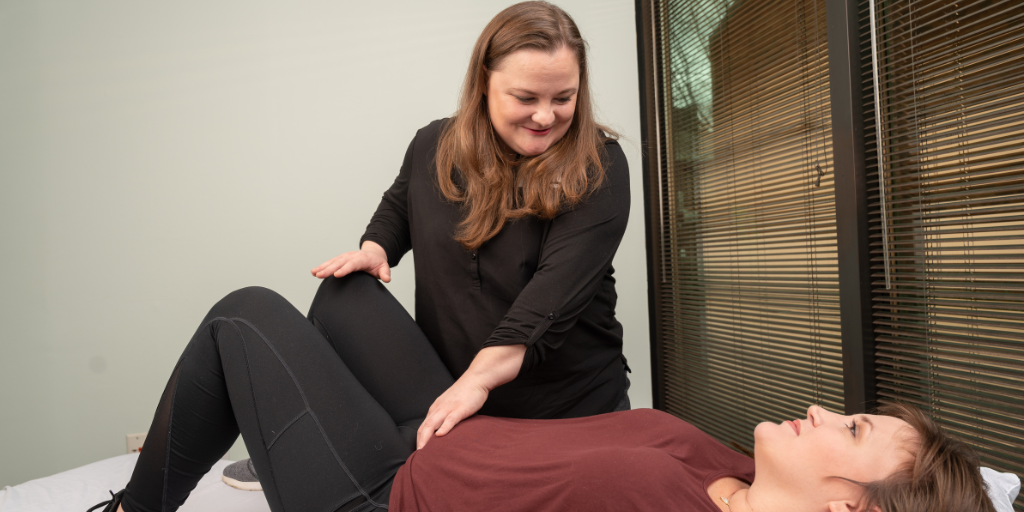Written by: Holly Anderson, SPT
Being diagnosed with Interstitial Cystitis (IC) can be overwhelming! In fact, it often begins with many doctor appointments and ends with more questions than answers.
What is IC:
IC is an inflamed or irritated bladder wall. The exact cause is unknown, but it is suspected that factors of causation can include genetic and immune disorders, recurrent bacterial infections, and pelvic floor dysfunction. Symptoms can include bladder and pelvic pain or pressure and frequent urge to urinate.
I am here to tell you that there are ways to manage this. It will take some work, but know that there is hope for getting back to the things you love without IC controlling your life.
Here are 4 tips that I have found helpful in management of IC as both a patient and as a pelvic health PT:
1. Elimination diet
Foods such as tomatoes, citrus, coffee, and tea can be bladder irritants for people with IC. An elimination diet is a way to pinpoint what your specific trigger foods are. Start with a simple diet of protein, rice, and vegetables. Pull up a list of bladder irritants from an IC help website. Choose 1 item at a time to add into the diet. If the item increases symptoms, mark it as a personal bladder irritant. Give your body time to calm down and then choose another item. If it is not, continue choosing items and marking them safe until you come across an irritant. Your physician and nutritionist can help guide you through this process.
2. Supplements
Aloe Vera can help coat and soothe the bladder. Desert Harvest is a great brand with substantial research to back up its benefits. Some IC patients find Marshmallow Root supplements and tea to be very effective at relieving symptoms. Marshmallow root supports repair of the bladder wall by adding a mucosal element that resembles the natural bladder wall before being damaged by IC. The other product I highly recommend is Prelief. It is an over the counter acid reducer crafted specifically for IC. It reduces 95% acidity in favorite trigger foods such as tomatoes, vinegar, and wine. Caveat: this does not mean go crazy and eat all your trigger foods thinking it will magically cure all! Try Prelief with your different trigger foods and see if it makes a difference. What works for some patients may not work for others.
3. Support
I’ve spoken with many patients who don’t know anyone else with IC, which can feel isolating and make rehabilitation more daunting. At the beginning of my journey I found it helpful to be part of some support groups on Facebook. In this space people share ideas and things that have helped them, ask and answer questions, and in general, are there as a community to lean on. Ichelp.org and ic-network.com are also helpful websites for navigating management of IC. They provide educational information, lists of trigger foods and safe foods, and general support.
4. Pelvic Health Physical Therapy
Inflammation and pain from IC can lead to (or stem from) tightness around the bladder including the abdominal wall, hip muscles, and pelvic floor, which in turn can cause further pain and muscle dysfunction. Your pelvic PT can help you identify and correct poor bladder habits such as urinating too frequently or drinking too little water. They can aid in pain relief from muscle tightness through soft tissue massage, internal pelvic floor release work, stretches, and exercises. Additionally, your pelvic PT can use a specific method of E-stim to assist with bladder urgency and frequency.
Remember, you are not alone in this journey! For questions or to schedule an appointment with Nesin Pelvic Health call (256) 513-8442.

